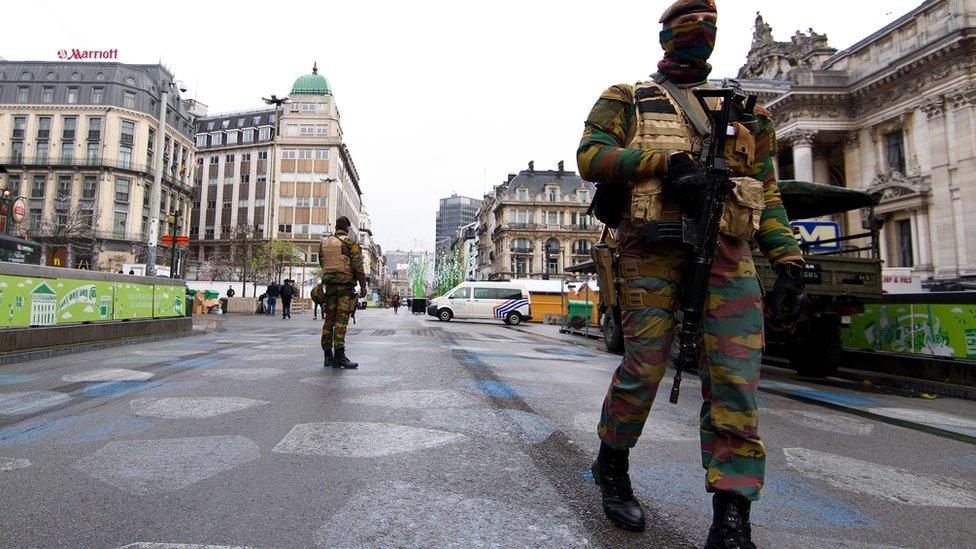Manchester businesses recovering after attack impact
- Published
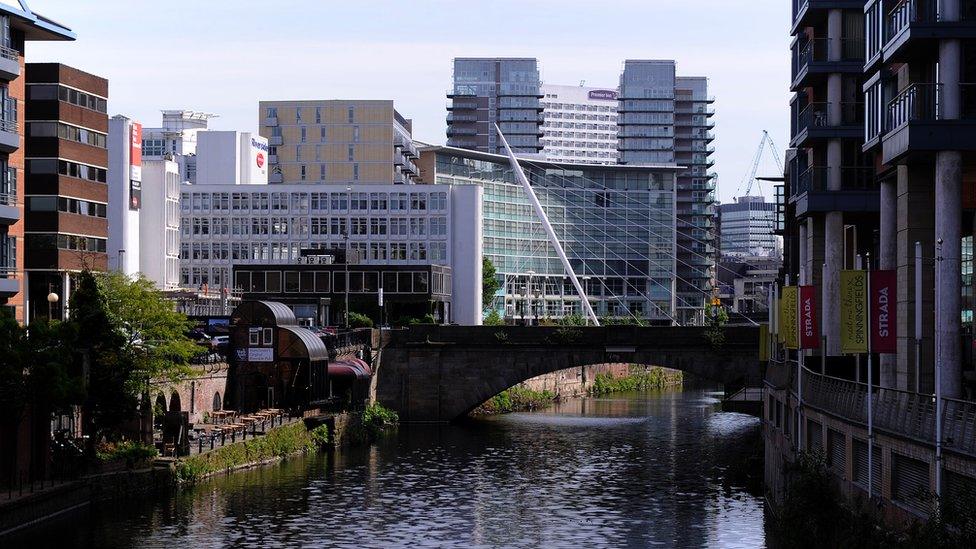
Business groups expect the financial impact on the city to be 'short-lived'
Like other terror attacks in Europe: London, Paris and Brussels, Manchester was fundamentally a human tragedy.
But even in the immediate aftermath, Manchester was resolute that it would carry on; it was "business as usual".
Growth in professional services, tourism and the burgeoning tech sector over recent years means it is now the UK's second city in terms of economic activity.
However, businesses in the area near to the Manchester Arena said they experienced a noticeable drop in trade following the event on 22 May in which 22 people were killed.
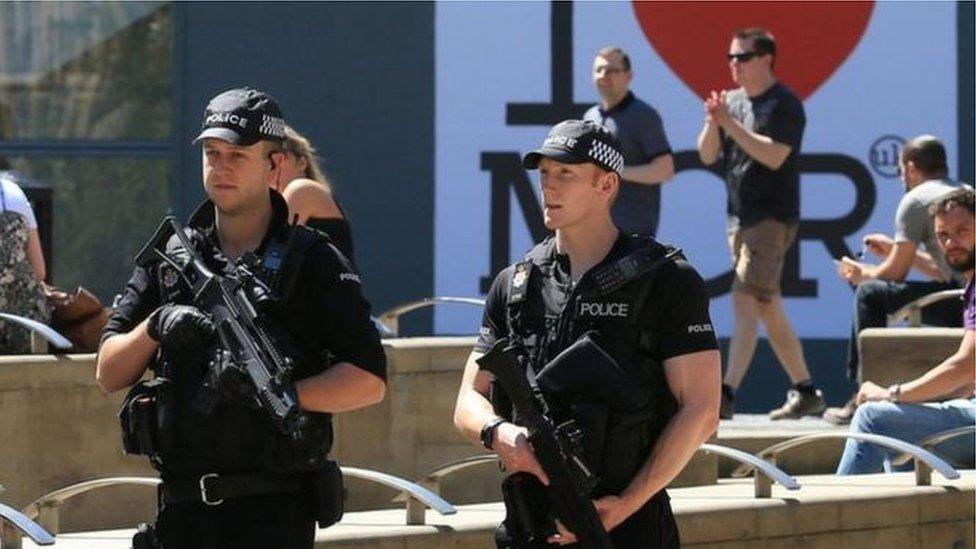
There was an increased police presence in the city following the attack
Howard Burns, who runs a jewellery business that has been in the city since the late 1800s, says that in the days immediately following the attack "there was no one shopping here".
"I think that the retail business in Manchester dropped off an awful lot just after the bomb because people were worried to come into Manchester.

To hear more about the impact the terror attack in Manchester has had on business in the city listen to the BBC 5 live Wake Up To Money podcast.

"Some people were frightened of being in a crowded area, some people were just scared of anyone with a rucksack on their back, and anyone who acted suspiciously."
Manchester City Council says it had offered support to firms closest to the arena, including business rate relief.
Cllr John Flanagan, Manchester City Council's executive member for finance, says: "Businesses within the inner cordon were impacted most acutely, and we have been in conversation since the attack to support them, including business rate relief, and the Manchester Business Continuity Forum has been updating and reviewing their continuity plans."
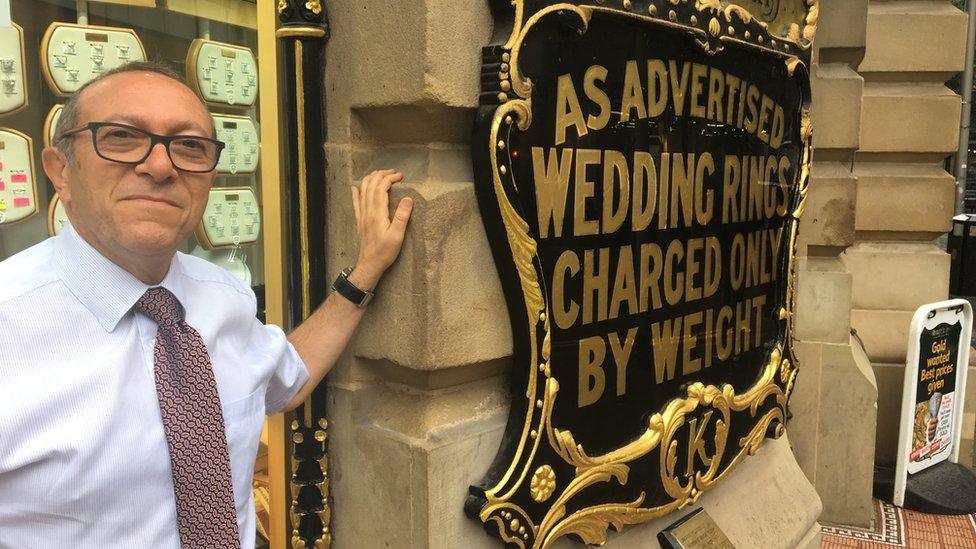
Howard Burns, a jeweller in the city, said it took two weeks for normal trade to resume
He added that the council and tourism groups would "continue promoting the city as a key UK destination, and to make sure visitor perceptions are not affected in the long-term".
Certainly in Paris, the tourism sector reported a sharp fall in the number of visitors to the city following the attacks in 2015.
Fewer tourists meant lost business for restaurants, shops, tourist attractions and transport.
Christian Spence, head of research and policy at Greater Manchester Chamber of Commerce, says: "Broadly... we don't expect anything in the long term; certainly not beyond some of the comparables we've seen in other cities who've faced similar incidents."
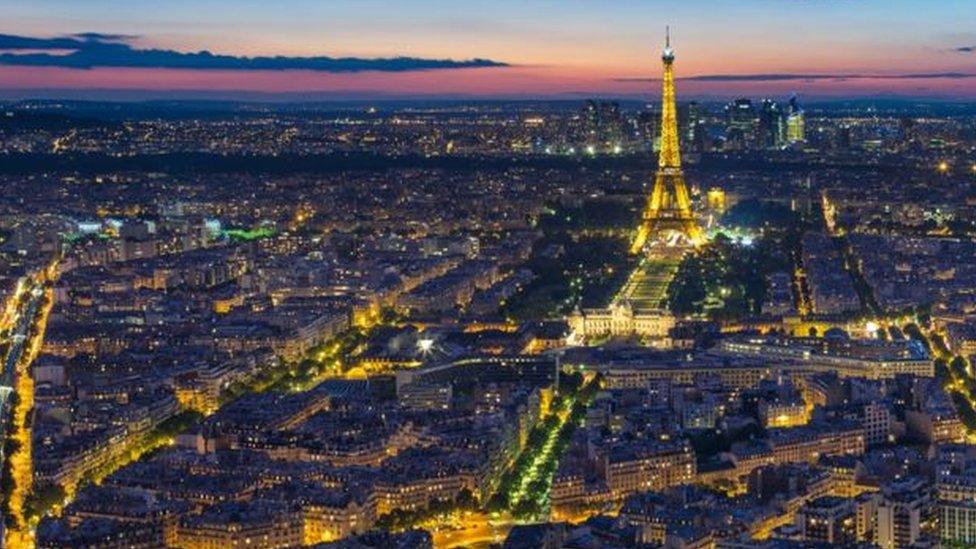
There was a sharp fall in visitors to Paris after the 2015 attacks
Manchester's economic data for the summer months will not be available "for a long time", but chamber members expect the impact on businesses in the city to be short-lived, Mr Spence adds.
According to its latest Quarterly Economic Survey, the city's Chamber of Commerce is predicting that UK growth will be 1.6% this year and 1.5% in 2018, while growth in Greater Manchester will be 3.25%.
Mr Spence says: "For those businesses that were closest to the terror site itself, of course there was a colossal impact in the immediate aftermath, which lasted for around a week as the cordon stayed in place.
"Otherwise more widely the major impact will have been around our conference and hotel facilities. That's a relatively short-term impact... but it will have hit some of those businesses.
After London, among British visitors, Manchester is the second most visited city in the UK.
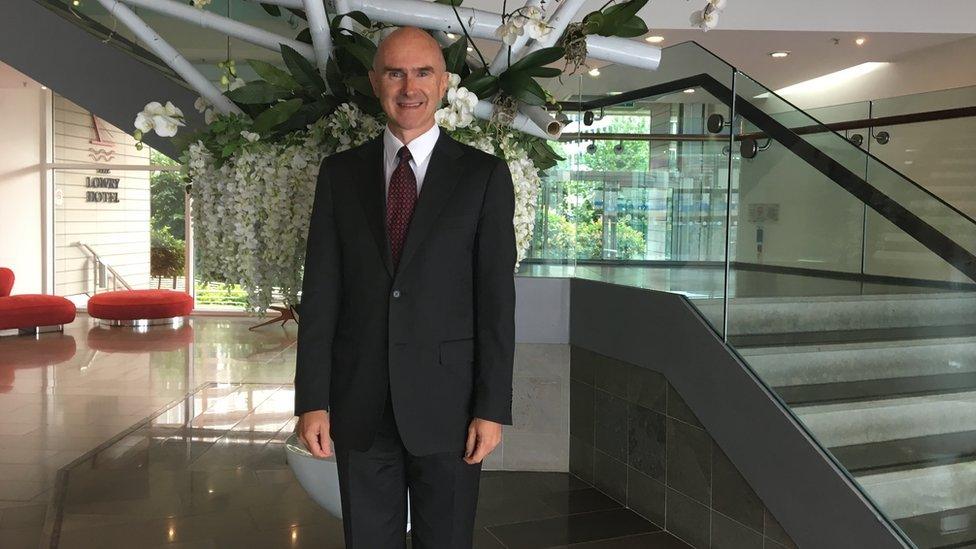
Adrian Ellis, chair of Manchester Hoteliers' Association (MHA), says many hotels in the city had lost a lot of business, but that the industry is recovering
The tourist economy is worth around £7.5bn to the Greater Manchester region.
Tourism was a sector that felt an immediate impact following the May attack.
The general manager of the Lowry Hotel, Adrian Ellis, says: "Our hotel, and along with the other hotels in the city, lost considerable amount of business, mostly with concerts cancelling because the arena was closed and still is closed."
The Manchester Arena is due to reopen in September 2017. Concerts by acts including Celine Dion, Radiohead, Bros and Blink-182 have been cancelled or rearranged.
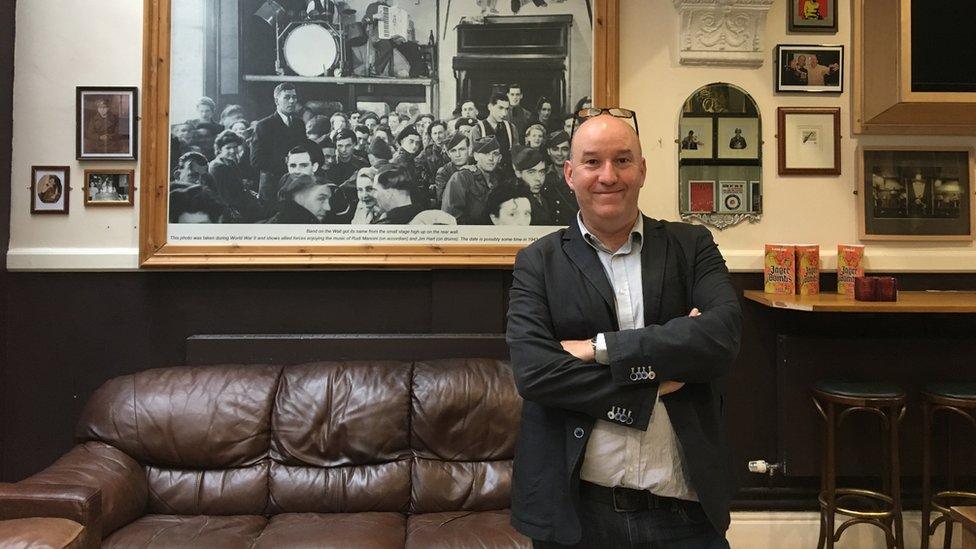
Gavin Sharp, owner of the Band on the Wall, venue says visitor numbers dropped noticeably
Mr Ellis, who is also chair of Manchester Hoteliers' Association (MHA), said the hospitality sector was noticing an improvement now.
Perhaps inevitably, other music venues were affected too.
One of those to experience a noticeable drop in visitors was the iconic Band on The Wall club, run by chief executive, Gavin Sharp.
He says: "Probably the best example is Craig Charles, who plays with us the last Saturday every month... it always sells out, it's quite a mainstream, broad audience.
"The Saturday after the bomb was Craig's show and it didn't get to sell out that time, and in fact 60 people who had bought tickets didn't turn up for the show, so even though they'd spent the money they decided they weren't going to come into the city centre."
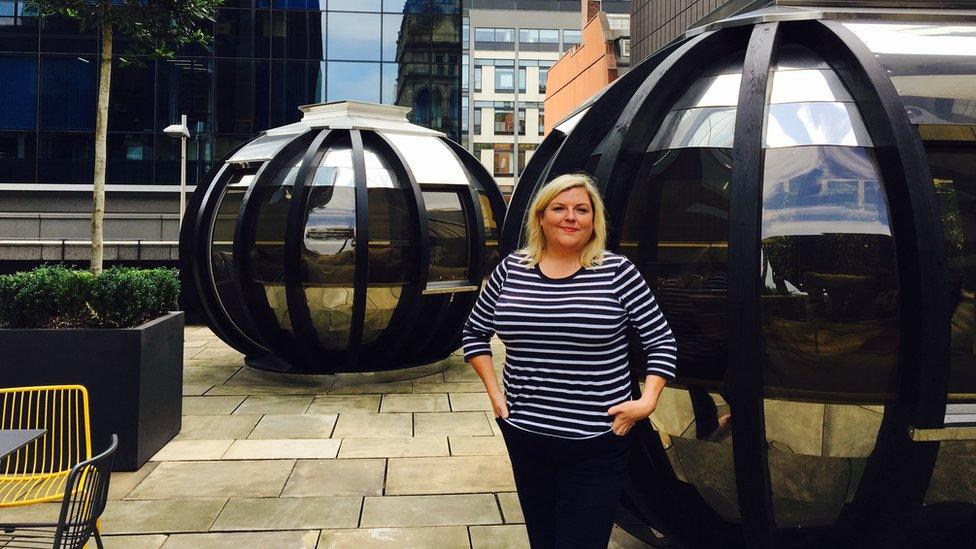
Katie Gallacher, head of Manchester Digital, says the attack has not put people off relocating to the city for work
But the mood in the city is optimistic, particularly among those in the tech sector. It is Manchester's fastest growing industry.
Katie Gallacher, head of Manchester Digital, says the industry had been relatively immune to events. She and many others in her sector are trying to encourage digital and tech professionals to relocate to Manchester.
"We're still seeing companies relocating here. It's a really great place to be, and the community's stronger than ever."
- Published14 June 2017
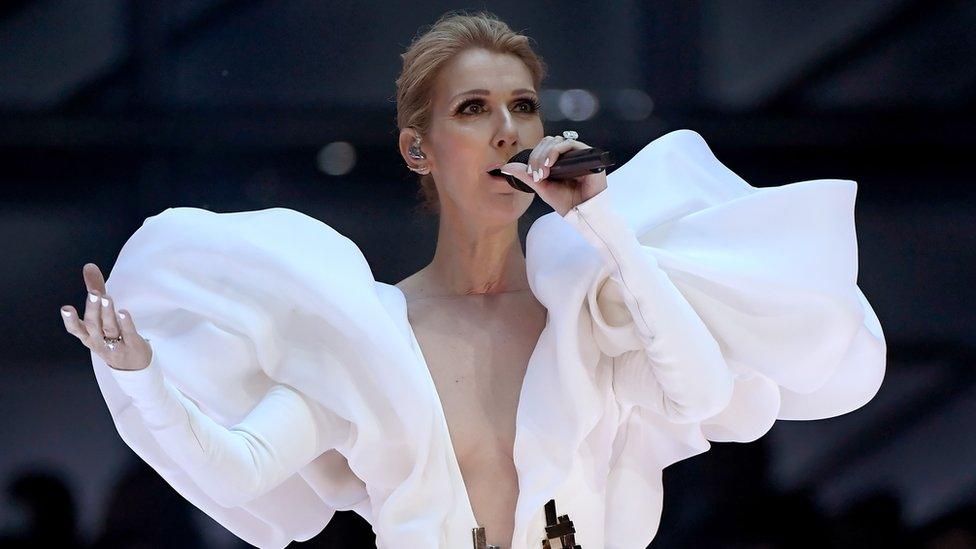
- Published13 June 2017
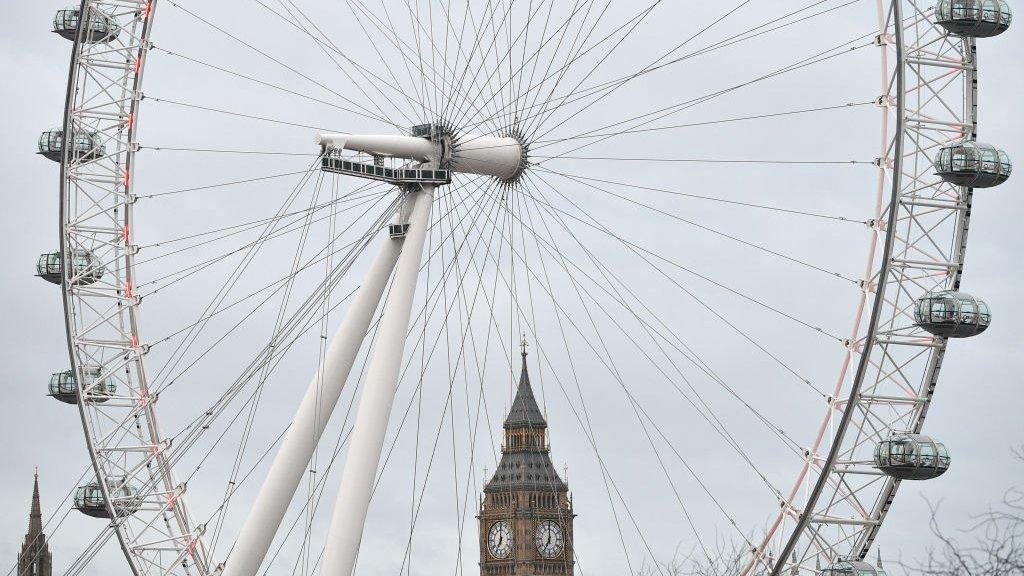
- Published2 December 2015
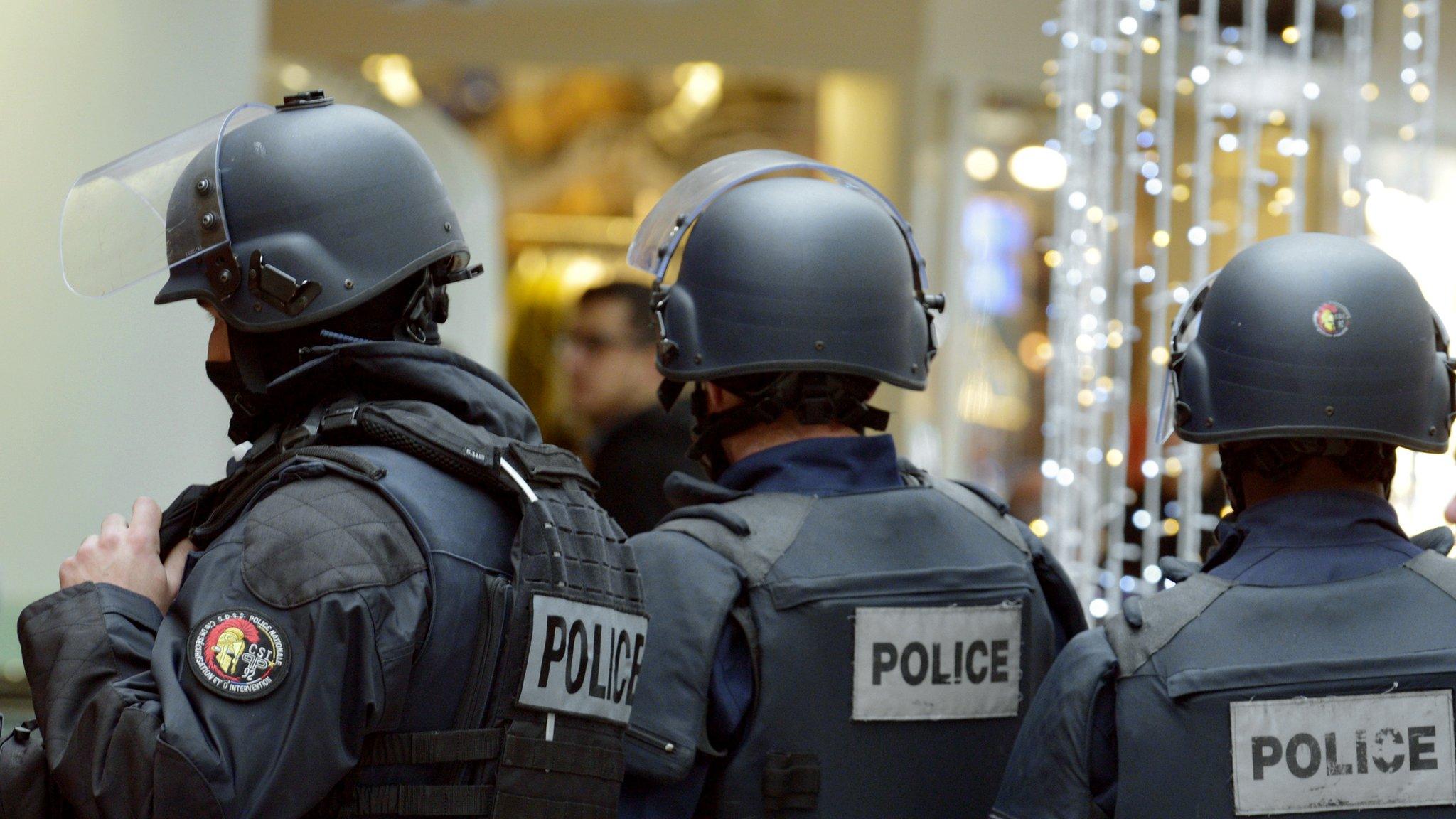
- Published24 November 2015
